SPOILER ALERT: This review is filled with SPOILERS for “Inside Llewyn Davis.” If you don’t want SPOILERS for “Inside Llewyn Davis,” do not read beyond this point. I put SPOILERS in bold/caps lock because you see, I’m trying to make a point.


SPOILER ALERT: This review is filled with SPOILERS for “Inside Llewyn Davis.” If you don’t want SPOILERS for “Inside Llewyn Davis,” do not read beyond this point. I put SPOILERS in bold/caps lock because you see, I’m trying to make a point.

 |
| Cat in the big city. Image via Rotten Tomatoes |
Yes, Joel and Ethan Coen have given us a musical biopic. It doesn’t mean they had to give you one about a real musician. Or even make the movie you wanted to see.
“Inside Llewyn Davis,” the Coen Brothers’ first film in a very long three years, is a welcome return to the big screen. It is the perfect awards season film that is also an anti-awards season film. It’s a tale for the holidays that wears its icy heart on its sleeves.
Like most Coen Brothers films, “Inside Llewyn Davis” is based on something else, but how much it’s based off of that thing is questionable. Davis is based on Dave Van Ronk. Most the songs in the movie are his, but Davis’ personality is different. This mystery just adds to the charm.
“Inside Llewyn Davis” takes place in the winter of 1961 and follows, well Llewyn Davis (Oscar Isaac), a struggling folk singer who is just trying to get his voice heard. Llewyn is very talented and he has even released a few albums, yet no matter what he does he can never quite reach success. He has no permanent roof over his head, a cheap manager, and a former love interest who is convinced that he is the worst person on earth.
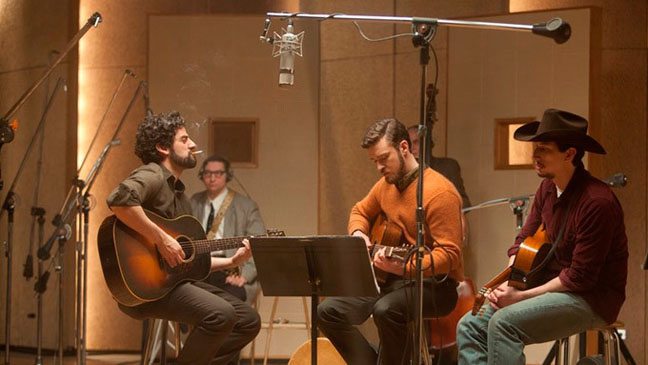 |
| Adam Driver’s character on “Girls” would also wear that outfit. |
And maybe he isn’t so great. The Coen Brothers don’t like perfect and kind protagonists. That is part of what makes all of their films so interesting: they are more interested in the people who keep on going, despite never quite getting what they want.
“Inside Llewyn Davis” is damn near close to perfection, and I get the sense that it is a result of all the right people meeting at the exact right time. Isaac’s musical ability coincides beautifully with his acting talent. Justin Timberlake continues to show why he is more talented than all of us. Meanwhile, as Llewyn’s ex, Carey Mulligan serves as Llewyn’s reality check. She sure gets a lot of mileage out of the word “asshole.” Together, the three of them bring new life to old tunes, and make 1960s Greenwich Village feel so alive. Just like “O Brother, Where Art Thou?” before it, you will want to buy the soundtrack the minute you get home.
Mainly, this film would not have been possible under any other writer or director. The Coen Brothers have one of the most distinct voices in modern cinema. Every time they portray the past, it is a past that did not quite exist: it is a Coen Brothers universe filled with unfortunate circumstances and off-beat, mumbling side characters.

While every Coen Brothers film has a sense of humor, “Inside Llewyn Davis” might be the funniest one they have done in years. Usually, it takes multiple viewings to find the humor in their films (“A Serious Man,” for example, becomes more of a comedy than a drama the more times you watch it). There is an unavoidable humor to John Goodman’s mean-spirited Roland Turner, and so many jokes mined at the expense of the oblivious kindness of the Gorfeins. Still, I refuse to ever call the Coen Brothers mean-spirited.
“Inside Llewyn Davis” relishes in its musical moments because the Coen Brothers, in collaboration with T-Bone Burnett and Marcus Mumford, are so good at recreating the magic of watching a live performance. Yet, “Inside Llewyn Davis” is also an anti-musical. The songs do not teach lessons or move people to tears. “Inside Llewyn Davis” uniquely portrays a performer who’s central problem is that he cannot connect with others. Watching a portrayal of artistic failure might be sad, but it is important to know that sometimes those with talent can go completely unnoticed. Llewyn is honest and authentic, and those seem to be the exact qualities that get in the way of his success.
“Inside Llewyn Davis” is often so grim yet it never feels tragic to watch. It does not follow a fluid plot but rather a series of situations that Davis is thrown into. The film is never meandering or dull, especially when this dark world is populated with such colorful characters. “Inside Llewyn Davis” strays away from all of the directions that similar films would have taken. The Coen Brothers don’t want to give you the ending that will necessarily satisfy you; they want to show you the world as they see it through their eyes as filmmakers.
After watching “Inside Llewyn Davis,” you too might realize that there might just be no better way to view a film from now on.
Brain Farts From The Edge
 |
| Image via Business Insider |
Well, it’s almost Thanksgiving again. And you know what that means: time to start thinking about Christmas!
December is always an exciting movie month. Its when the less explosion-y blockbusters come out, and the small movies that normally wouldn’t get much publicity finally get the spotlight. This looks like a particularly good December that will hopefully make up for some of the more lackluster months of 2013. Come on Hollywood, this is when you get to show everyone that movies are still relevant!
In order to ensure a great holiday season, here are the December releases that I am most excited to see. Join me in the excitement, people. It’s the least you can do since, you know, I can’t celebrate Christmas:
6. The Secret Life of Walter Mitty
As a director, Ben Stiller has become more and more ambitious. “Walter Mitty” looks more serious than funny, and I know that Stiller is up to the task, both in front of and behind the camera. Mostly, this looks like an exciting adventure story that could appeal to just about anybody. There is something about Sean Penn’s weird finger summoning that makes me crack up every time I watch the trailer. However, I will forget I ever saw this, because “Walter Mitty” also stars Adam Scott, who plays a huge d-bag in it. Adam Scott seems like such a nice guy, but he also plays d-bags better than just about anybody else.
5. Her
I am willing to forgive Spike Jonze for “Where the Wild Things Are,” partly because this is the same guy who also directed “Being John Malkovich” and “Adaptation.” Also, “Her” looks so strange yet so fascinating. Joaquin Phoenix falls in love with a computer voiced by Scarlett Johansson? Relevant social commentary? No further questions.
Sure, America didn’t need a sequel to “Anchorman.” But Americans also don’t need most of the things that we have. I would be lying though if I said that I didn’t shriek with excitement the moment I saw the first trailer for “Anchorman 2: The Legend Continues.” To put it simply, “Anchorman” might just be the comedy of my generation; ask just about anybody my age about it and they will immediately start to quote it by heart. “Anchorman” is to the ’00s what “The Jerk” was to the ’70s and “Airplane” was to the ’80s.* Comedy sequels do have a bad habit of getting it wrong. For now, I am confident that “Anchorman 2: The Legend Continues” won’t be anything less than hilarious.
3. The Wolf of Wall Street
Finally, it is safe to say that “The Wolf of Wall Street” will be released in 2013, and will also be eligible for the 2013 Oscars**. More importantly though, I will finally get to see “The Wolf of Wall Street,” which I have been anticipating for months. Here’s a story of Wall Street corruption that will probably be a lot more entertaining (or certainly funnier) than “Wall Street.” I mean, there’s flying midgets and a chimpanzee in roller skates. Reportedly, “The Wolf of Wall Street” is three hours long, which would make it the longest film Martin Scorsese has ever directed. 46 years into his career, and Scorsese still finds ways to top himself.
2. American Hustle
David O. Russell has been on fire lately. His last two films (“The Fighter,” “Silver Linings Playbook”) were wonderful, and it seems like he’s found a batch of performers that just know how to work with him (sorry, Lily Tomlin). The trailer itself, from fat Bradley Cooper to “Good Times Bad Times,” gets me excited enough (even if it’s hidden all evidence that Louis C.K. is also in it). David O. Russell has become one of those directors who is consistently exciting to watch, and his name alone is enough to get me to race over to the nearest theater. Speaking of directors who meet that criteria…
1. Inside Llewyn Davis
Joel and Ethan Coen. That’s about all it takes for me to get excited for a movie. To make it even better, “Inside Llewyn Davis” is about the Greenwich Village folk scene in the 1960s. Then, to make it even even better, this marks yet another collaboration between The Coen Brothers and John Goodman, who haven’t done a movie together in years. If there’s one thing that the Coen Brothers are definitely good at, it’s directing John Goodman in a period piece.
This is a ser- I’m a ser- I’m, uh, I’ve tried to be a serious man, you know? Tried to do right, be a member of the community, raise the- Danny, Sarah, they both go to school, Hebrew school, a good breakfast…
“A Serious Man” begins with the blast of Jefferson Airplane’s “Somebody to Love,” linking the past to the present, and drowning out a dull Hebrew school lesson. In this day and age, what does it mean for a Jewish man to be a serious man? If you are looking for a movie that is both religiously faithful and an existential mind trip for the halfway point of Hanukkah, then look no further. This is the first and probably the last movie you’ll ever see that’s based on both the Talmud and Schrodinger’s Cat.
Who else could have made a movie like this than Joel and Ethan Coen. It is based partly on their own childhood growing up in a Jewish family in a mostly Jewish suburb of Minneapolis, and the rest is a lot of things that could have happened, but probably didn’t. “A Serious Man” begins with a short parable that takes place in a shtetl. It might explain every one of the following events we see, or none of them. Maybe it is what the Coen Brothers say it is: their attempt to create their own Jewish fable. The rest of the movie focuses on Larry Gopnik (Michael Stuhlbarg), a father who goes through a crisis of faith after his wife leaves him and he begins to lose his children to the 60s. No one, not even a string of rabbis, can provide him with guidance.
“A Serious Man” is funny not in a haha kind of way, but more in the kind of way that if you watch it multiple times, the ultimate mind f**k of it all is kind of hilarious. This is the Thinking Man Jew’s kind of movie. And that is not to say that anyone can’t like this movie. However, some people might not appreciate “The Goy’s Teeth” quite as much. For those who are passionate people watchers, especially of the Jewish kind, this movie gives a prototype of every Jew you can think of. Some will find stereotypes, others will find hilarious objects of affection.
“A Serious Man” definitely will not inspire as much joy and laughter after a candle lighting as say, a Woody Allen or a Marx Brothers movie, but it will definitely inspire fervent debate and conversation. If you are really curious about what that cut to black at the end means, I only have so many answers. Instead, I would refresh on your Bar Mitzvah torah portions. And then pick up some physics textbooks. Philosophy might work, too.
If this movie makes you crave for from the Coen Brothers tonight, I would check out “The Big Lebowski” immediately afterwards. It’s a great movie but that’s just like, my opinion, man.
1. Black Swan- There are few words that could ever truly do justice to this film. But for a movie this good, it’s worth a try. “Black Swan” is the kind of psychological thriller that has been told so many times. Yet, what sets this one apart is that it actually has something new and effective to say. “Black Swan” is the greatest achievement in cinema in 2010 because it simply made up the best movie experience possible, doing so little and accomplishing so much. Darren Aronofsky’s look behind the scenes of a ballet may not be totally realistic, but it was a perfect metaphor for the artistic process. “Black Swan” also comes with the best female acting of the year. Natalie Portman’s wounding performance constantly oscillates between evil and innocent, yet never lands on just one. “Black Swan” leaves the viewer with so much to chew on with only some closure. It may be ambiguous, it may not make sense, but in the end, this film will never leave your head. It leaves you with something, and it leaves you with nothing.










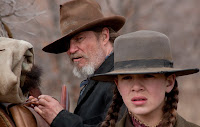 “True Grit” begins like any other Coen Brothers movie: with a pretty image set to mysterious background narration. Is this going to be another typical Coen experience? Not exactly.
“True Grit” begins like any other Coen Brothers movie: with a pretty image set to mysterious background narration. Is this going to be another typical Coen experience? Not exactly.

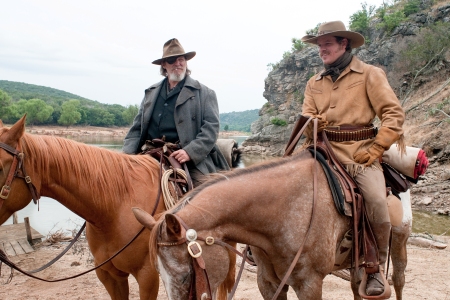

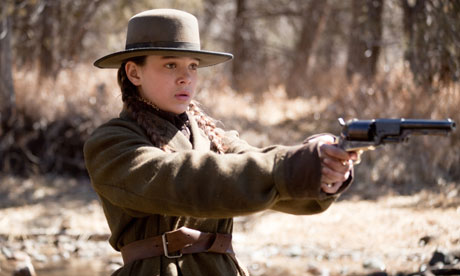


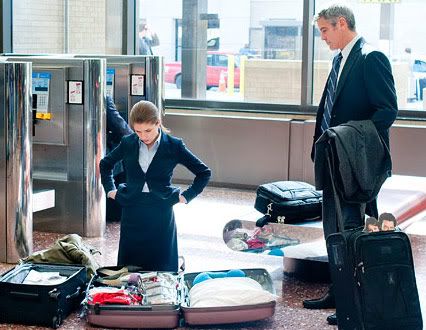





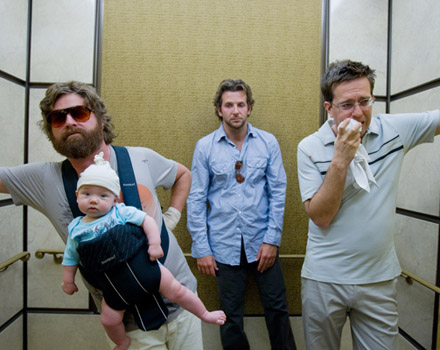
 The very first scene of “A Serious Man” is a short fairytale set in a Polish shtetl. While one can spend hours figuring out how this fable connects to the rest of the film, interpretation is futile. Directors Joel and Ethan Coen have repeatedly stated that this story had nothing to do with the rest of the film. So, why put it in? Because, we have officially entered the world of the Coen Brothers, a world like few others; a world where they can do whatever they like.
The very first scene of “A Serious Man” is a short fairytale set in a Polish shtetl. While one can spend hours figuring out how this fable connects to the rest of the film, interpretation is futile. Directors Joel and Ethan Coen have repeatedly stated that this story had nothing to do with the rest of the film. So, why put it in? Because, we have officially entered the world of the Coen Brothers, a world like few others; a world where they can do whatever they like.
 Normally, I’d be jumping for absolute joy when hearing that The Coen Brothers and Jeff “The Dude” Bridges will be making their first movie together since “The Big Lebowski.”
Normally, I’d be jumping for absolute joy when hearing that The Coen Brothers and Jeff “The Dude” Bridges will be making their first movie together since “The Big Lebowski.”